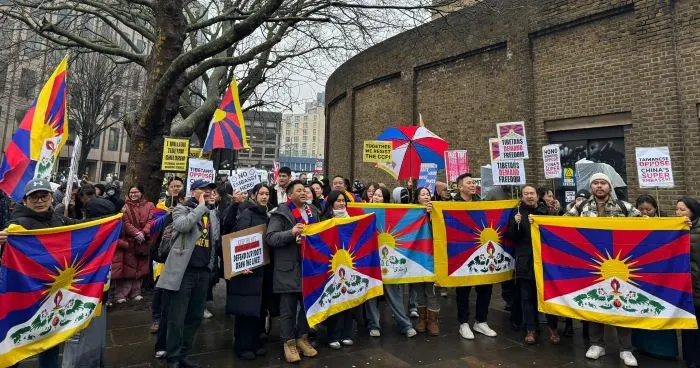WHAT NIGERIA CAN TEACH US ABOUT CHINA’S BELT AND ROAD
Many people are debating whether Beijing is a new neo-colonizer or a development partner because of China’s position in Africa. Such a discussion has largely ignored the significance that African countries themselves play in this connection.
Both parties require such a relationship. China provides financial support and investments to African economies, as shown in the Belt and Road Initiative (BRI). The One China policy, the exploitation of Xinjiang’s human rights population, and the repression of Hong Kong’s democratic institutions are just a few examples of the difficult topics that China gains access to important resources, export markets, and international backing for. The relationship between China and any one African country, however, is wildly lopsided in Beijing’s favour.
Due to its large financial resources, “non-interference” guiding philosophy, and rhetoric of good intentions, China has become the partner of choice for many African countries. China’s 2021 Africa White Paper served as an example of this, stating that the country’s objective in the region is to “give more and take less, give before taking, and give without asking for anything in return.” Africa is cordially invited to board China’s rapid train of growth by that country.
Although those sentiments are admirable, it is still unclear how African countries can get the most out of such an unbalanced relationship. Accepting Chinese aid, investments, capital, and technology for large infrastructure projects is only one aspect of reaping benefits.
What is required is the practice of local agency, which is trying to wield influence in order to reap the greatest rewards. In order to ensure that political, social, and economic players are actively involved in BRI projects, the government would be required to encourage localization.
In that sense, Nigeria serves as a case study for what occurs when an African government is powerless to reshape its alliance with China to serve the interests of the people living there.
Since becoming strategic allies in 2006, Beijing and Abuja’s economic ties have flourished in a way that both parties would typically describe as “win-win.” China has grown to be Nigeria’s preferred source of development assistance and a significant player in trade and investment there.
With Abuja officially joining the BRI in 2018 during the Forum on China-Africa Cooperation (FOCAC) Summit in Beijing, China has in particular been Nigeria’s go-to source of assistance for restoring its crumbling infrastructure. Abuja’s plans to rebuild its infrastructure are now centred on China and its economic players, particularly the China Civil Engineering Construction Corporation (CCECC). The Lagos-Kano railway line ($6.7 billion), Kaduna-Kano railway line ($1.7 billion), and Lagos-Ibadan railway line ($1.5 billion) were all built with the help of Beijing. China’s influence extends beyond the construction of railroads; Chinese businesses are now in the forefront of projects to build airports and ICT infrastructure.
The advantages are obvious. The much-needed public commodities that would boost economic activity are delivered to Nigeria. Nigeria’s political leaders have hailed China for its aid countless times. Not everything, though, is rosy. Aside from the problem of debt sustainability, local actors in Nigeria have been excluded from decision-making and project implementation because of the operationalization of the BRI in that country. For instance, only 28% of Nigerians, far below the 33-country average of 47%, are aware of Chinese “loans/development assistance” in their nation, according to an Afrobarometer survey.
Even Nigeria’s national senate bemoans the opaqueness of loan arrangements negotiated by the administration and state banks in China. This continues a pattern identified by AidData: Loan agreements in China sometimes have “far-reaching secrecy restrictions.” BRI projects in Nigeria are steeped in secrecy, corruption, and flagrant contempt for domestic laws as a result of the country’s inadequate institutional capabilities.
As a result, there aren’t many thorough connections between China’s massive initiatives in Nigeria and the home economy. Chinese companies, technology, and capital are typically tied to development assistance, which poses a threat to local economic actors. Nigerian construction firms are already complaining that they are excluded from BRI projects.
Nigeria’s transport minister, Rotimi Amaechi, replied by urging these businesses to increase their capacity to carry out such huge projects. These domestic businesses are actually operating under a system that disadvantages them.
The managing director of the Nigerian engineering and construction company Dutum Company Limited, Temitope Runsewe, observed that “These Chinese companies show up with cheap funds from China… They will tell their government, “Just show us the projects, and we’ll organise and begin building.” Most of our government officials simply give in to this extreme allure instead of strengthening local capacity.
This propensity occasionally runs afoul of Nigeria’s 2007 Public Procurement Act, which mandates that bids be open, transparent, and competitive. Amaechi, Abubakar Malami, the attorney-general of the federation of Nigeria and minister of justice, as well as the CCECC, were recently sued for procurement irregularities relating to the awarding of a contract to CCECC to build a 190-kilometer narrow gauge track from Minna in Niger State to Baro for 91.7 billion Nigerian nairas (roughly $210 million). Until now, the government has also demonstrated a reluctance to enforce local content standards in BRI projects. For instance, the House of Representatives Committee on Treaties, Protocols, and Agreements of Nigeria argued that no indication of local content requirements could be found in the loan agreements under consideration













